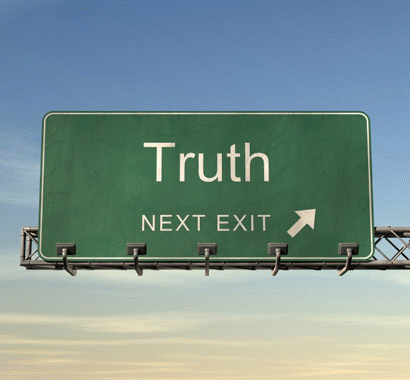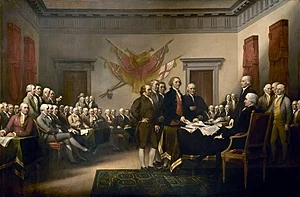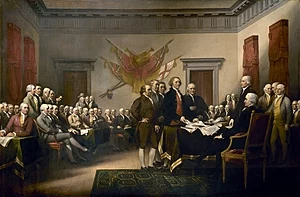An Introduction
“Apologetics” is generally defined as religious arguments originally used by early church fathers to defend what would eventually become Christian doctrine, to both non-believers who had no particular religious beliefs, an act of persuasion, and to others who had interpreted the tale of Christ and its meaning differently, an act of defense against false doctrine.
This occurred in the 300 years before the Church had been formed and its doctrine codified.
In all this period Christians were a vast minority, and they didn’t even have a written book to point to as an authority for what they were teaching.
For at least 300 years it was a dicey practice to argue for Christ out loud, for Christianity was largely outlawed, not just for what it preached, but for the simple fact that it had no host nation. Virtually every nation, all the way down to the tribal level, had their own exclusive religion. and they did not like competition that might upset the social equilibrium. This practice goes back to the beginning of recorded history and is with us still.
Kings and emperors would only tolerate other religions if the politics of keeping peace in a newly conquered territory was important enough to allow the conquered people to hold onto their religion to suit some purpose. This was the case for Judea at the time of Christ, as the Romans, like the Greeks before them, allowed Judeans to hold onto a local king whose territory wasn’t much larger than a Texas county and with the authority of a county sheriff.
The New Testament wouldn’t be codified until around 400 AD, but it would take another thousand years, the 1450s, before the Bible could be mass produced, thanks to a man named Gutenberg. Until then, holy books were drawn up by quill and ink by monks in monasteries, which in part explains why the early Church had an almost thousand year headstart in both reading and writing over the royal classes, who, illiterate or no, were very stout and clever at organizing conquering armies, so owned almost all the land in the known world.
It was at Runnymede, in 1215, in England, when one of those kings, of England, John, literally stabbed the entire king system of Europe in the back…only out of cupidity, and not Christian charity…by agreeing to allow some commoners to own land in their own right, in fee simple.
This would be the claw hammer that would open the coffin of the private ownership of land, the denial of which had been a cornerstone in the law of nations since the pharaohs. This would be but one part of a sequence of events that would culminate in the founding of America, which no scientist can still explain as a natural occurrence.
Christian Apologetics
First there were Christian apologetics, and for their first 300 years Christian scholars argued less with pagans than with what they perceived as heresies, people who challenged their interpretations of Christ’s meaning…again all before the New Testament had been codified. Early among these was Gnosticism and Montanism, then later Arianism. Considering that the story of Christ, and the themes of Christ originally went out to the far-flung Roman world by word-of-mouth, carried by 120 missionaries, headed in 120 different directions, each armed with a newly-acquired language (at Pentecost), and each with slightly different versions of events, you can see how this might all get confusing after a couple hundred years,
Gnosticism was the most interesting, as it came with various versions, some with no mention of Christ at all. Interestingly, one inferred a Lucifer-type creature subordinate to God, called a ‘demiurge” who the Gnostics said was the real “creator” of which Genesis spoke. They said he created the Earth, the Garden, the flood and all the chaos that followed. The true high supreme god was outside these events and it was this god this branch of gnostics worshipped.
And they seemed to seek him out because he was more remote, and more difficult to perceive, so only a small, more exclusive group could perceive him and understand his themes.
You see, the Gnostics were largely Greek, and though recently conquered by the Romans they looked down on the Romans, as northern Italians might look down on Sicilians. Or for that matter how the people of Classical Greece proper looked down on the hillbillies from Macedon who conquered them in 338, and became the “new Alexandrian” Greeks, until the Romans would throw them down in 64 BC.
That transitory wheel is always spinning.
It was these kinds of Greeks who, while they admired the themes of Christ, they didn’t like a religion in which the best and brightest would come before God as equals with commoners. So they devised a distant far superior god whom they could pledge their allegiance who did not require them to hang out with hoi polloi.
If you have a difficult time recognizing this type of people, and it is a type, think of modern #NeverTrumpers who can’t abide a political philosophy that embraces the bottom feeders of society, forgetting that those were primarily the people Jesus directed His message to, and for whom the US Constitution was specifically written.
Just as a racist cannot teach his child to hate with the same vitriol with which he hates, neither can an atheist teach his children to disbelieve with the vitriol he disbelieves, without first taking away their power to think for themselves.
So the test of a religious faith’s staying power is whether it can survive the passing of time generationally. That kind of transcendence is found in two basic forms; Love and Hate. Gnosticism lasted little more than three generations and was dying out before the Nicene Council in 313 AD (CE) which codified the Church. It died without help because it could not pass its belief system on, much like the Shakers. A fad. Or Doo Wop, which will pass from man’s memory when I die.
Most institutions are mortal and eventually die. All brands die. “National Review” was a cornerstone of modern conservatism, but is merely a brand today. It’s Roman Catholic founder had openly declared he would prefer to be governed by the first 400 names in the Boston telephone directory than the faculty at Harvard, yet today, a decade after the passing of its founder, it has abandoned those 400 and the transcendence of our nation’s Founding and will eventually die out. That’s a law.
American Apologetics
Science has laws about the survivability of mutations in nature. They almost all die without outside intervention.
So the American “mutation” isn’t a mutation at all. It’s now in it’s 412th year of survival, but for the past century has come under a growing, in both strength and purpose, external assault to erase from its collective memory all of the themes on which it was founded and caused it to grow and prosper.
America’s advantage is that we still recognize the nature of our theology, the strength of our front lines, despite our front office.
Over the years, Christian apologetics have changed. There is less outreach to lost souls, but very much more to good souls that may have lost their way. I follow many of those folks on Twitter. Much of Christian apologetics are reminders, the opening of old doors, revealing forgotten ways at looking at things, shown new and fresh. CS Lewis was a master at this.
But Lewis was more interested in the individual soul, and taught in that vein. He warned against concern about the collective soul in an episode of Screwtape. Had he been alive in the 1970s I would have complained to him, for a church, however shallow and corrupt at the edges, lives or dies by the collective strength of its base. Lewis’ Anglican Church is moribund in England, as possibly is Christianity in general there. “Sinking ships with no excess baggage to throw overboard.”- Twain
But just 30 years ago every American had at least heard of God and Jesus. They could have been reached out to. This is no longer the case. For one, the public mention of the Christian God is generally considered bad form. And in many colleges and universities is forbidden except in designated areas, much like for smokers.
This is not an accident, and it will get worse, considering the hands, and Hand, that are behind it. Since the early 2000’s there has been, in educational and social circles especially, an active “new atheism” that is less philosophical..in fact, void of real philosophy…and more political, aggressively attacking the practitioners of Christianity, not only for their public speech and acts, but the audacity of their thinking…all along the general lines that their ideology cannot co-exist with any ideology that holds to a higher authority than Man.
This is not new. It was a founding principle of Marxism from the beginning; that there is no other god than the State. If you will look at the original apologists of the First Century, it was no different with Rome.
We are just not yet forced into groves of trees and catacombs…except maybe in China.
Of the First World it can be argued that America is the only surviving Christian nation. Many Second and Third World nations have strong religious roots, but are subject to authoritarian front offices which are in the economic grip of the secular First World. For them to be permitted to move up, God must first be moved out.
America has been the only holdout, so as America goes, so will go (literally) the rest of the Christian world.
This is why American apologetics are slightly different.
American apologetics is predicated on one simple fact:
That in all man’s history, no nation, or people, or event, such as the
United States had ever existed in nature.
So it cannot be an accident.
So, as with the Intelligent Design vs Science debates that have been going on for the past 30 years, even going back into the 1850s when theologians were arguing against pre-Darwinian atheism, it can be proved Logically that Mind had to precede Nature for any of this world to make sense.
It’s not what you can prove about a belief, but what they can’t prove as fact, that wins the first round of a debate.
It’s the “fact that cannot be” that opens the mind of the doubter, all stemming from the fact that we, the people, created our own front office in government, and at every level of government, rather than having been created by that front office.
And to point our the singularity of our creation and existence, point out that of all the nations in history, we are the only nation that has sent it sons (and now daughters) to risk their lives for total strangers, on foreign soil. And it all began when over 2 million volunteered for this mission, and 400,000 died, over 160 years ago.
This list of unique American attributes goes on.




This.. “If you have a difficult time recognizing this type of people, and it is a type, think of modern #NeverTrumpers who can’t abide a political philosophy that embraces the bottom feeders of society, forgetting that those were primarily the people Jesus directed His message to, and for whom the US Constitution was specifically written.”
… Is a fundamental truth about God’s children that Jesus understood deeply and is the basis for his having chosen Peter – himself a sinner and sullied by his own sinful’ ways – as The Rock on which the Christian church would be built.
It is also a fundamental truth about people and human nature that the Founders understood and, likewise, the foundation on which America was built.
Anxiously awaiting the next Edition.